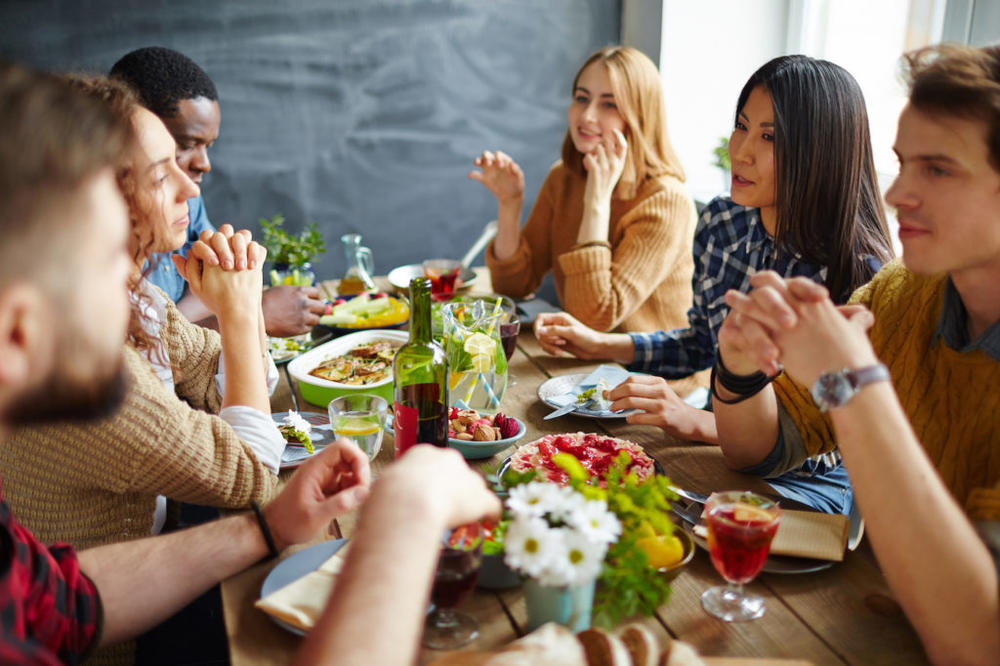
Section Branding
Header Content
Much more goes into holiday 'comfort food' than ingredients
Primary Content
LISTEN: Many of the foods we eat on holidays make us feel happy and some ingredients like tryptophan found in turkey can even make us sleepy. But these foods aren’t the only thing impacting our brain’s reward system. GPB’s Ellen Eldridge has more.

The feeling of fullness or being “stuffed” when celebrating is a combination of our food and the emotions we attach to a meal. That includes those who prepared it, those we share it with, and the recipe itself.
Negar Fani, a clinical neuropsychologist with Emory University, focuses her research on the brain’s reward system and emotional processing.
Comfort foods like chicken noodle soup are about more than what they're made of, she said.
"One of the most powerful ingredients of, like, comfort food is not the food itself, but the context in which the food has been served," she said. "It's warm and soothing, but there's the aspect of someone providing nurturance for you. I think Thanksgiving's like that."
The ingredients do matter, of course, and Fani said the reason many people feel the need for a post-meal "turkey nap" has to do with tryptophan.
"Many [dishes] are high in tryptophan, which is an amino acid that gives rise to serotonin," Fani said. "So, it's one of our feel-good neurotransmitters when we're feeling happy and secure."
Tryptophan only comes from food. People do not naturally synthesize the amino acid that provides a feeling of relaxed and potentially sleepy satiation, she said.
The feel-good chemicals of junk food make people feel good.
"All of us are hard-wired to want to reach for something sweet or something salty or something carb-rich or fatty when we're feeling that stress," Fani said. "Because when we eat those foods, it releases a lot of glucose and it releases things like dopamine."
It also provides social connection.
"Food is clearly something that we need to nourish us and keep us going," Fani said, but emotional eating can lead to problems like obesity, diabetes and other metabolic disorders.
"When we eat a thing like, let's say a candy bar, in response to something that was stressful, we're releasing that pleasure, the neurotransmitter," Fani said. "And this, in turn, can influence more of the same behavior."
Holiday calories don't count though, as the joke goes.
"I'm a social eater, so I love to eat all the foods [and be] around people, especially on holidays," Fani said.
She said adults should have an intentional approach to their diet and model responsible eating to children by discussing what the different foods mean — such as a recipe handed down through generations.
Holidays are not reflective of our day-to-day lives, she said. People gather and serving foods that they don't usually eat on a regular basis.
"I don't know that many people who cook a turkey on a regular basis." Fani said.
Rather, the traditions act as anchoring experiences of social connection.
"I think for a lot of people, there is this time where you don't have to go to work [and] you can see your family, connect with them," she said. "Eat these foods that you eat on these occasions and it brings you all together."

